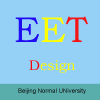-
Webquests
普通类 -
- 支持
- 批判
- 提问
- 解释
- 补充
- 删除
-
-
The Instructional Use of Webquests
WEBQUESTS ARE AN ALTERNATIVE to traditional text based instruction. They are constructivist based activities delivered via the Internet. Webquests feature cooperative learning and the creation of an authentic product.
-
Instructional Purpose of Webquests
Webquests allow users to explore a large body of information within a content area. Social Studies, the Sciences, and the Humanities are often appropriate areas for a webquest. Webquests however, may be used in any subject at any level, from first grade through college.
During a webquest, students complete a task using a given body of online resources. For example, fifth grade students studying space might be assigned the task of designing a human habitat for colonizing Mars. They form teams and conduct research using a given set of resources. In the course of the webquest they explore astronomy, engineering, biology, and ecology.Students discover facts and concepts while completing their tasks. Webquests are therefore constructivist activities. The webquest contains guiding questions and a procedure for completing the task. However, each group of students is on their own path and will create their own body of knowledge.
After students have researched and discovered a set of knowledge, they transform it into a new product. Webquests therefore require students to apply and synthesize knowledge while completing their task. In our example webquest, students synthesized information by designing habitats based on their research. They also summarize their findings in a presentation to an advisory council.-
Advantages of Webquests vs. Text Based Instruction
Webquests offer several advantages over textbook based instruction. In traditional classes, students read a text, listen to lectures and take objective tests. They act as knowledge receivers.
Webquests, unlike traditional classroom activities, require active learning. Webquests require students to think at higher levels. Besides just reading and remembering, students apply, synthesize, analyze and evaluate. They also are inherently cooperative activities by design. Students practice listening, and speaking skills as they work with partners or present to large groups.-
More Information
The Webquest Page: Bernie Dodge's “official” webquest page.
Using Webquests in Your Classroom: A short summary of webquest design.
Webquests and More: Webquest templates and checklists.-
Author
John Andrews, Department of Educational Technology, SDSU
-
-
- 标签:
- based
- webquest
- activities
- webquests
- students
- require
- completing
- body
- knowledge
-
加入的知识群:




学习元评论 (0条)
聪明如你,不妨在这 发表你的看法与心得 ~